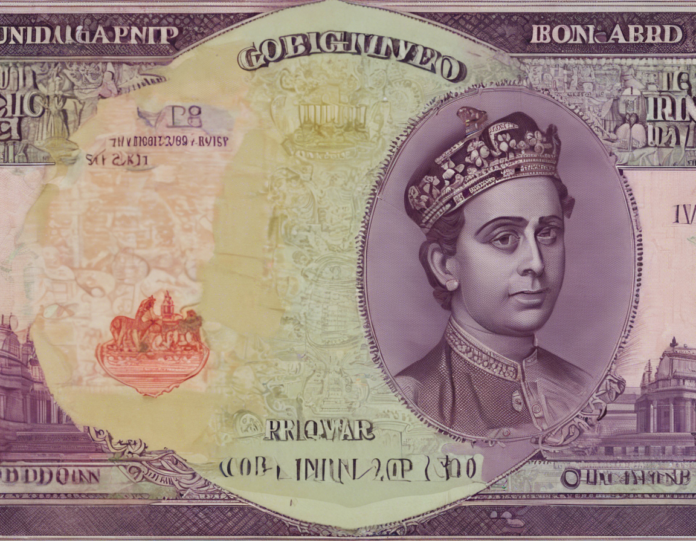When it comes to converting GBP (Great British Pounds) to INR (Indian Rupees), understanding exchange rates and how they work is essential. Whether you are a frequent traveler, an investor, or simply need to make a money transfer, knowing how to effectively convert these currencies can save you both time and money. In this comprehensive guide, we will delve into the factors that influence exchange rates, the best methods for currency conversion, and tips to get the most out of your money when converting GBP to INR.
Factors Affecting Exchange Rates
Exchange rates are influenced by a myriad of factors, including economic indicators, geopolitical events, market speculation, and central bank policies. Understanding these factors can help you predict how exchange rates between GBP and INR may fluctuate. Here are some key factors to consider:
1. Interest Rates:
Central banks’ decisions to raise or lower interest rates can impact currency value. Higher interest rates typically attract foreign investment and strengthen a currency, while lower rates can have the opposite effect.
2. Economic Indicators:
Key economic indicators such as GDP growth, unemployment rates, inflation, and trade balances can significantly influence exchange rates. Strong economic performance often leads to a stronger currency.
3. Political Stability:
Political stability and performance can also affect currency values. Countries with stable governments and low levels of corruption typically have stronger currencies.
4. Market Speculation:
Market speculation and investor sentiment can cause short-term fluctuations in exchange rates. Traders’ perceptions of a currency’s future value can impact its current price.
Methods for Converting GBP to INR
When it comes to converting GBP to INR, there are several methods available, each with its advantages and disadvantages. Below are some common ways to convert currencies:
1. Banks:
Most banks offer currency exchange services, allowing you to convert GBP to INR. While convenient, banks often charge higher fees and offer less competitive exchange rates.
2. Currency Exchange Services:
Currency exchange services specialize in currency conversion and may offer more competitive rates than banks. Online platforms like TransferWise and Revolut are popular choices for converting currencies.
3. ATMs:
Using ATMs in India to withdraw Indian Rupees with your UK debit or credit card is a convenient option. However, be aware of foreign transaction fees and ATM withdrawal charges.
4. Forex Brokers:
Forex brokers provide a platform for currency trading and often offer more competitive exchange rates than banks. However, using forex brokers may require more knowledge and experience in trading.
5. Currency Futures:
For more advanced investors, currency futures can be used to hedge against currency risk or speculate on future exchange rate movements. This method involves trading contracts based on anticipated currency values.
Tips for Getting the Best Exchange Rate
To get the most out of your GBP to INR conversion, consider the following tips:
- Compare Exchange Rates: Before converting currencies, compare exchange rates offered by different providers to ensure you get the best deal.
- Avoid Airport Exchange Counters: Airport exchange counters often have higher fees and less competitive rates. It is better to exchange currency elsewhere.
- Monitor Exchange Rate Trends: Keep an eye on exchange rate trends and consider converting currency when rates are favorable.
- Consider Timing: Timing can significantly impact exchange rates. It may be beneficial to convert currencies during off-peak times when rates are more stable.
- Use Limit Orders: Some currency exchange platforms offer limit orders, allowing you to set a target exchange rate. This can help you automate currency conversion when rates reach your desired level.
FAQs: Converting GBP to INR
1. What is the current exchange rate for GBP to INR?
The exchange rate between GBP and INR fluctuates daily. It is recommended to check real-time exchange rates on financial news websites or currency conversion platforms.
2. Are there any limits on how much GBP I can convert to INR?
Exchange limits may vary depending on the provider you choose. Banks and currency exchange services often have maximum limits for currency conversions.
3. How long does it take to convert GBP to INR?
The time taken to convert GBP to INR varies depending on the method used. Some methods, such as ATM withdrawals, are instantaneous, while bank transfers may take a few days to process.
4. Are there any fees associated with converting GBP to INR?
Yes, most currency exchange services and banks charge fees for converting currencies. Additionally, consider foreign transaction fees and ATM charges that may apply.
5. Is it better to convert GBP to INR in the UK or in India?
Converting GBP to INR in India may offer better rates in some cases, but it is advisable to compare rates and fees in both countries to determine the most cost-effective option.
In conclusion, converting GBP to INR involves understanding exchange rate dynamics, choosing the right conversion method, and optimizing the process to get the best value for your money. By considering the factors that influence exchange rates, exploring different conversion methods, and following the tips provided, you can effectively navigate the currency conversion process and make informed decisions when converting GBP to INR.



